Charlie Pearmond
The End of Unconscious Bias Training. A Scientific Approach to Creating an Inclusive Culture
#1about 2 minutes
Introducing implicit learning for behavioral change
Traditional explicit instruction fails to change behavior, but implicit learning through feeling offers a new, more effective approach.
#2about 2 minutes
The limitations of traditional unconscious bias training
Research shows that conventional DEI training often fails to produce positive workplace effects because people resist being told what to do.
#3about 2 minutes
The neuroscience of virtual body ownership
The rubber hand illusion demonstrates how the brain can accept a fake limb as its own, a principle extended in VR to create full-body embodiment.
#4about 3 minutes
Reducing cognitive and social bias through embodiment
Embodying different VR avatars, such as Einstein or a person of another race, can improve cognitive performance and reduce implicit biases.
#5about 3 minutes
Changing police behavior by meeting your virtual self
A study with US police showed that experiencing an interrogation from the other side and seeing their own behavior replayed dramatically increased intervention rates.
#6about 1 minute
Practicing bystander intervention in a safe VR environment
VR simulations allow employees to safely practice intervening in challenging situations, building an "allyship muscle" without real-world risk.
#7about 3 minutes
Measuring the effectiveness of implicit VR training
Unlike traditional methods, VR training allows for precise measurement of behavioral change through data on voice, gaze, and movement.
#8about 2 minutes
Using AI to create adaptive and inclusive VR experiences
AI can personalize VR training by adapting scenarios in real-time based on user behavior to maximize learning outcomes and foster inclusivity.
#9about 1 minute
The significant impact of VR on police intervention
The police study revealed a jump in intervention probability from 23% to 79%, proving VR's power to change not just attitudes but actual behavior.
Related jobs
Jobs that call for the skills explored in this talk.
Wilken GmbH
Ulm, Germany
Senior
Kubernetes
AI Frameworks
+3
Sunhat
Köln, Germany
Remote
€85-115K
Senior
Team Leadership
Software Architecture
+1
Matching moments

04:57 MIN
Increasing the value of talk recordings post-event
Cat Herding with Lions and Tigers - Christian Heilmann

04:22 MIN
Why HR struggles with technology implementation and adoption
What 2025 Taught Us: A Year-End Special with Hung Lee

03:28 MIN
Why corporate AI adoption lags behind the hype
What 2025 Taught Us: A Year-End Special with Hung Lee

03:15 MIN
The future of recruiting beyond talent acquisition
What 2025 Taught Us: A Year-End Special with Hung Lee

02:44 MIN
Rapid-fire thoughts on the future of work
What 2025 Taught Us: A Year-End Special with Hung Lee

04:27 MIN
Moving beyond headcount to solve business problems
What 2025 Taught Us: A Year-End Special with Hung Lee

03:48 MIN
Automating formal processes risks losing informal human value
What 2025 Taught Us: A Year-End Special with Hung Lee

03:39 MIN
Breaking down silos between HR, tech, and business
What 2025 Taught Us: A Year-End Special with Hung Lee
Featured Partners
Related Videos
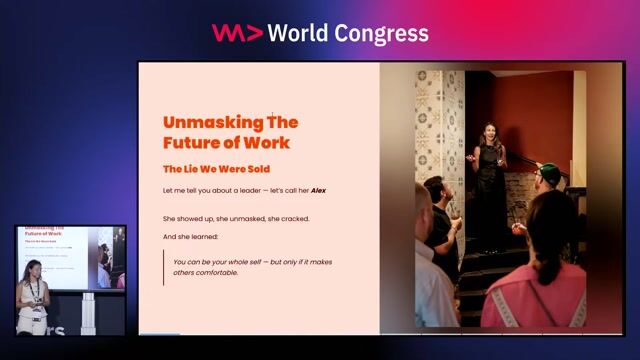 22:46
22:46Destigmatizing the Workplace: Building Real Inclusion
Marie Chaproniere
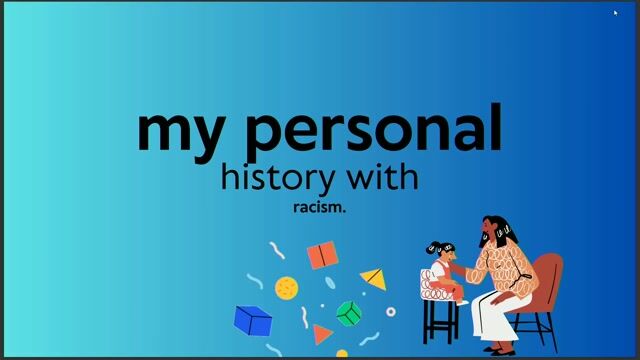 29:59
29:59Racism fuels users experiences : why you should understand the strength of biased narratives.
Marcy Charollois
 28:09
28:09The AI-Ready Stack: Rethinking the Engineering Org of the Future
Jan Oberhauser, Mirko Novakovic, Alex Laubscher & Keno Dreßel
 31:15
31:15The AI Skills Gap: What Tech Leaders Must Get Right
Thomas Wollmann, Gerrit Einhoff, Kara Sprague & Alexandra Wudel
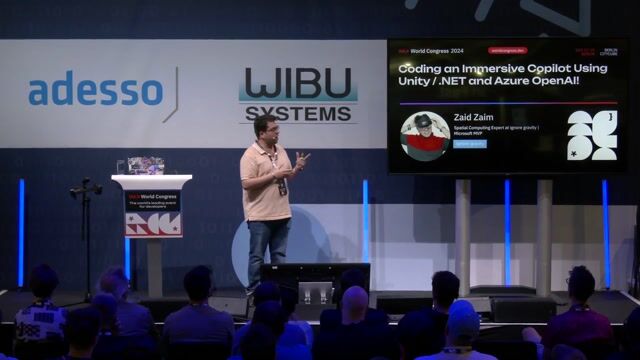 31:50
31:50Coding an Immersive Copilot using Unity / .NET and Azure OpenAI!
Zaid Zaim
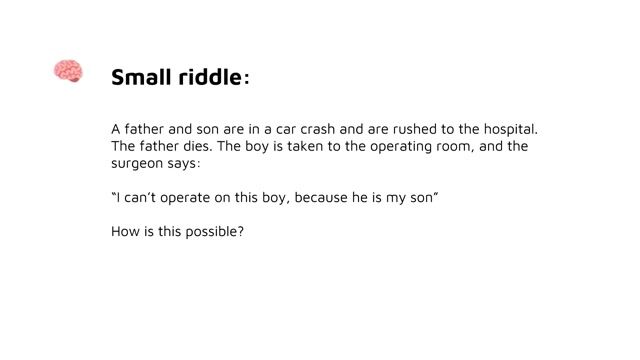 26:57
26:57Hiring Talent in Tech without Unconscious Bias
Inna Busnita
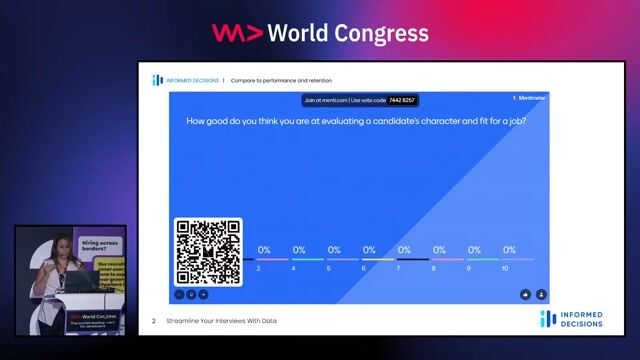 22:42
22:425 Interview Myths Busted: Is Your Thinking About Interviews Outdated?
Shiran Danoch
 32:53
32:53Diversity Backlash, Anti-Wokeness, Resistance – Is the World Going Downhill, or Moving Up?
Cawa Younosi & Rudi Bauer
Related Articles
View all articles



From learning to earning
Jobs that call for the skills explored in this talk.

Forschungszentrum Jülich GmbH
Jülich, Germany
Intermediate
Senior
Linux
Docker
AI Frameworks
Machine Learning


Stax - Deeptech Talent
Municipality of Madrid, Spain
Remote
Senior
Unity
Linux
Python
Unreal Engine




Abnormal AI
Intermediate
API
Spark
Kafka
Python

XAL
Barcelona, Spain
